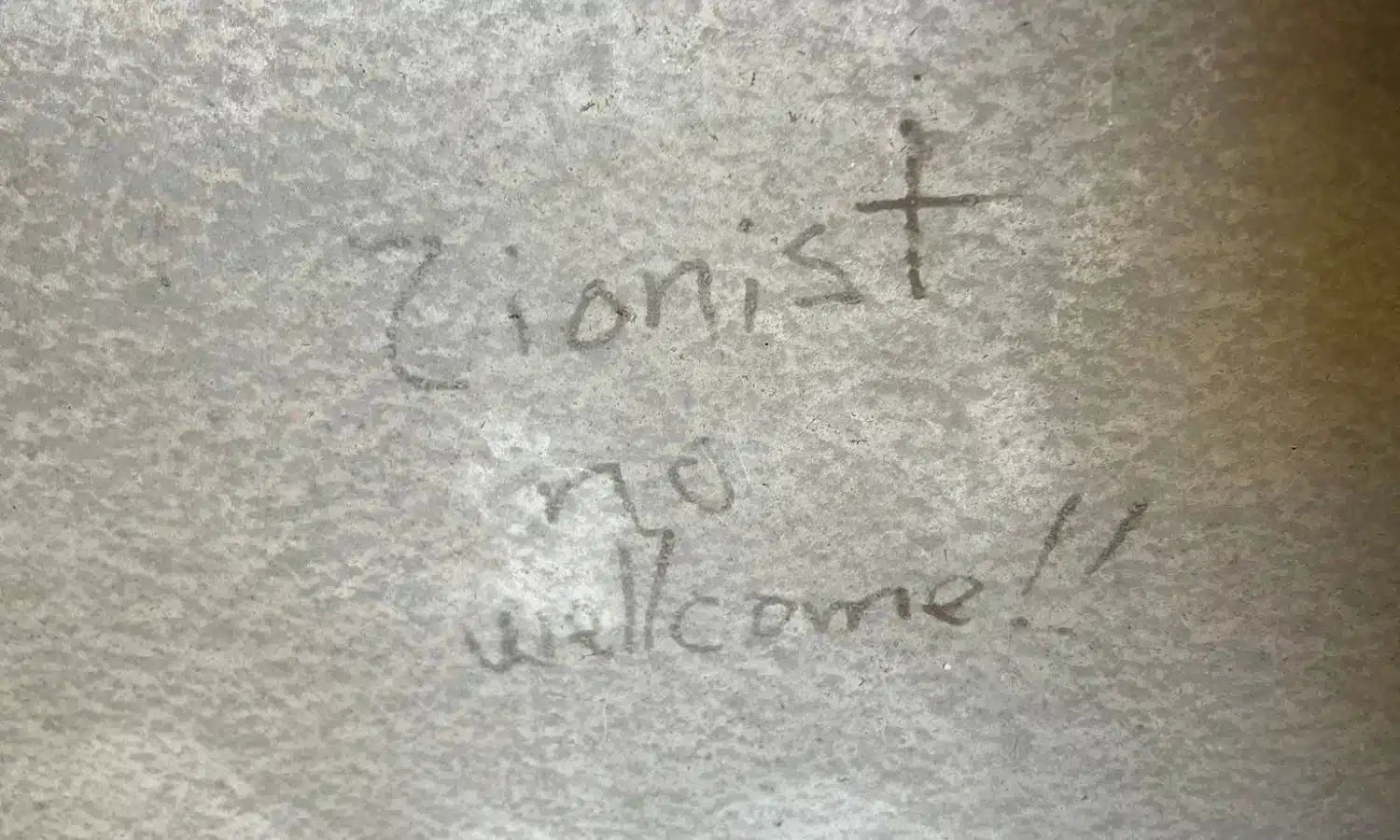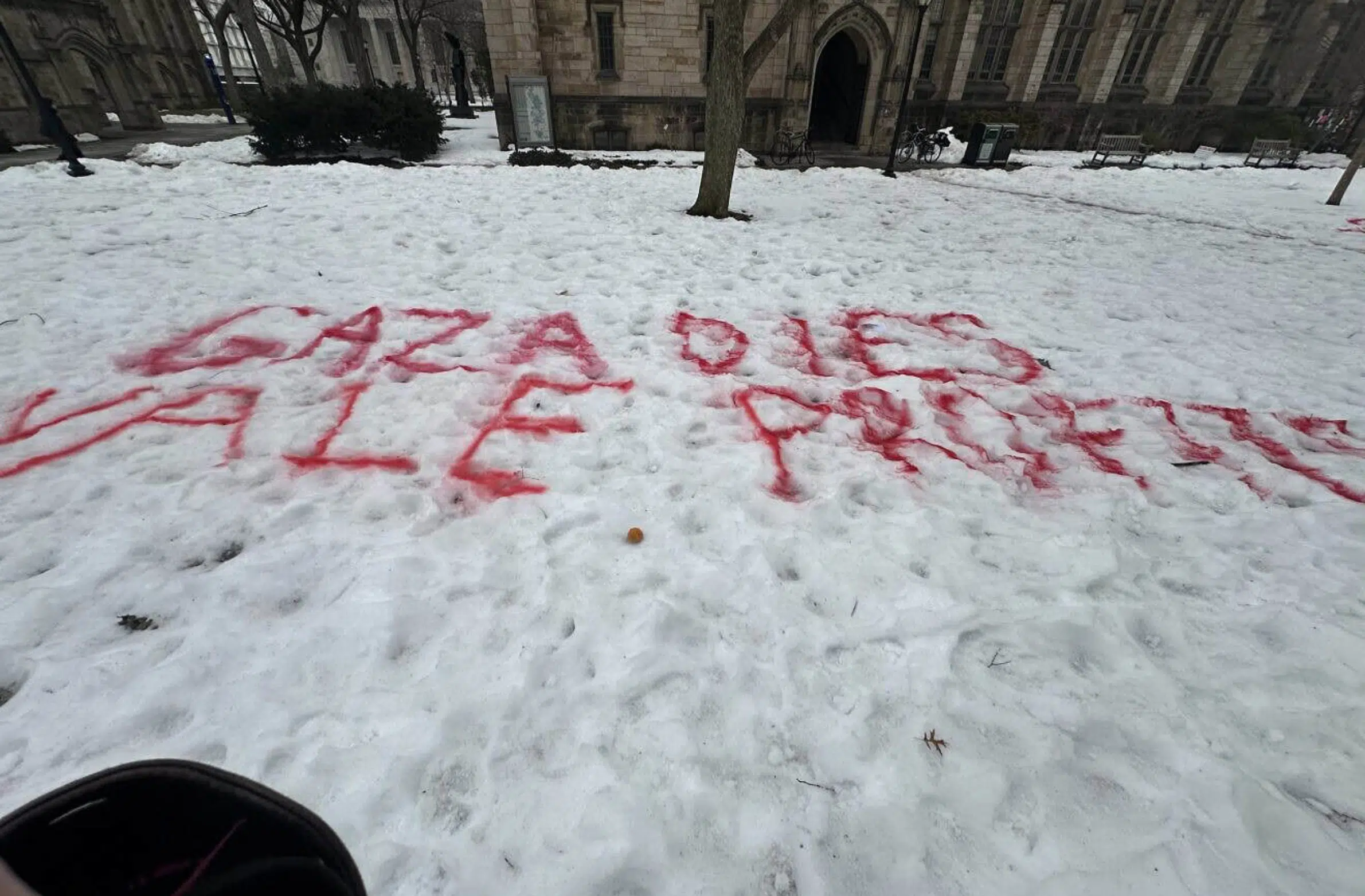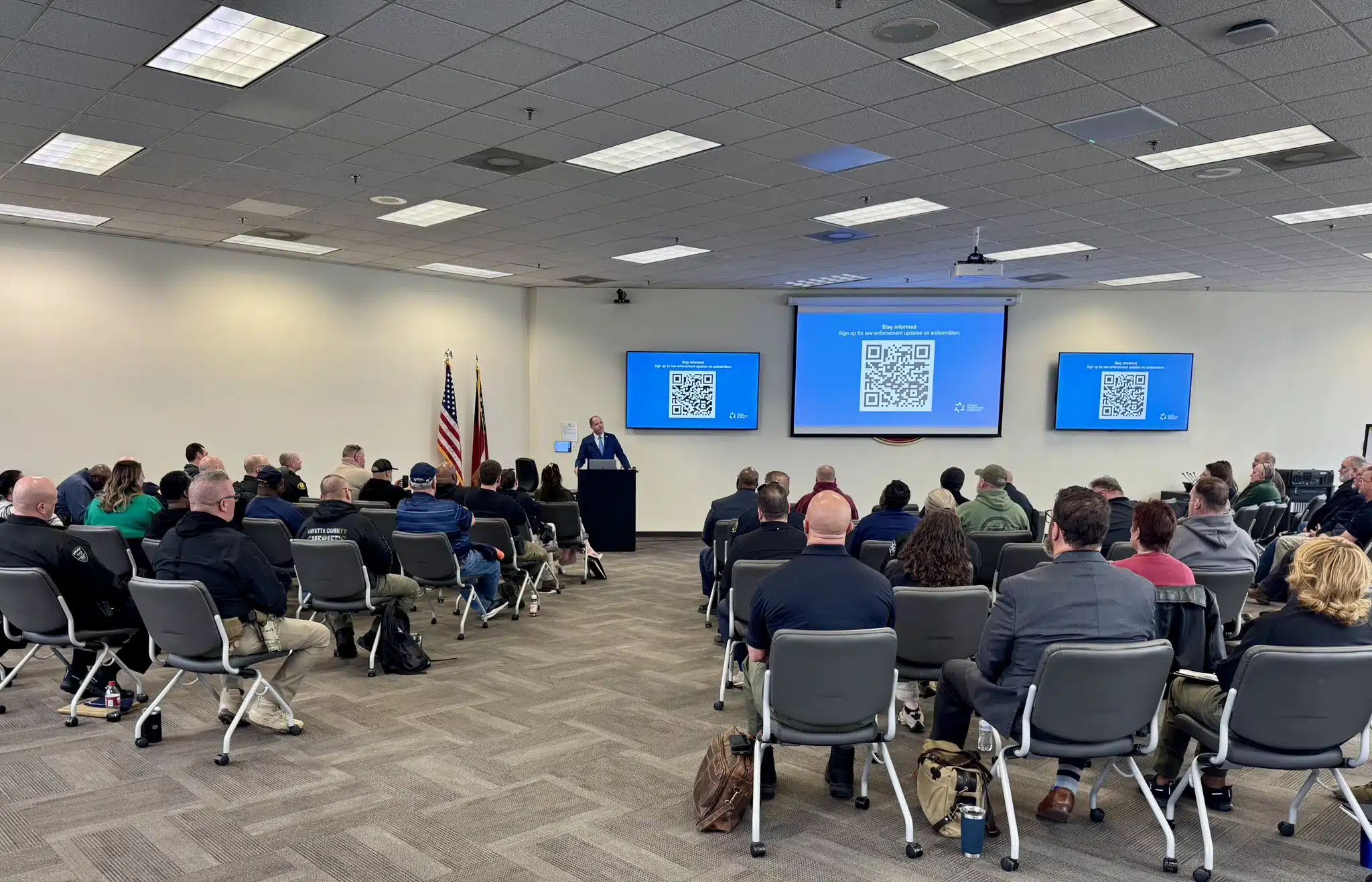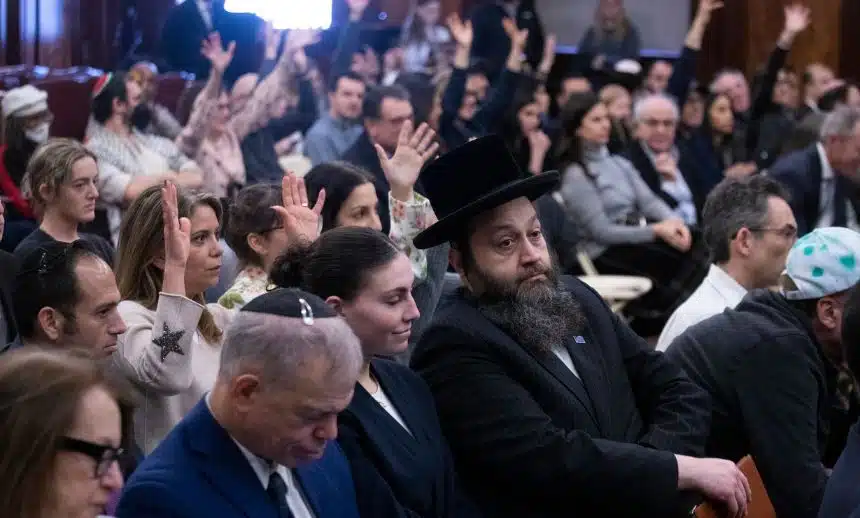

Persistent Hate, Selective Outrage: My Experience with Anti-Semitism at GW
By Blake Goodman (George Washington University, Class of 2020)
On the surface, The George Washington University looks like a very hospitable place for Jewish students to learn, grow and connect over four years. Almost one-third of the students currently identify as Jewish. GW also boasts a vibrant Hillel, a large Chabad, and a committed pro-Israel student organization, GW for Israel. However, these organizations can only do so much in combating anti-Semitism on campus.
In my past three years at GW, a disturbing pattern of anti-Semitism has emerged, fed by an environment in which anti-Semitism is subjectively defined by unaffected parties, particularly non-Jewish students, and tacitly accepted by University administrators.
Recently, the governing body of GW’s Student Association, the Student Association (SA) Senate, has become the de-facto definer of what constitutes or does not constitute anti-Semitism. As this predominantly non-Jewish body decides which forms of Jew-hatred seem offensive to them personally, members of the Jewish community at GW remain at risk of being targeted once again. This begs the question: in what other form of hatred does a group other than the offended minority determine its validity?
GW administrators reject, in writing, every form of anti-Semitism from bigoted rhetoric to the passage of BDS. Unfortunately, though, administrators have abided by the false notion that their support for GW Jews ends with a statement. When respectfully asked for a forum to entertain solutions or to receive an update on the disciplinary process for anti-Semitic offenders, the GW administration all too often is evasive.
My first encounter with anti-Semitism took place during my freshman year. Though the anti-Semitic symbols found in dorms earlier that year were easier to condemn, this incident was for some reason more challenging. This time, a sitting Senator in the SA had been revealed to have pushed for a boycott of the Jewish Student Association and GW Hillel, the largest and most-prominent Jewish organization on campus.
Ahead of an event that celebrated multicultural cooperation, this particular Senator attempted to have the voice of GW Jews removed from the event as a result of issues he had with a decision by the Israeli government. In a series of Facebook posts, the Senator put Israel in quotes and singled out the Jewish Student Association for all Israeli actions, employing an anti-Semitic trope: holding Jews collectively responsible for individual actions by the state of Israel, or any state for that matter.
Even after the pain of singling out Jewish students for condemnation was made explicitly clear by countless Jewish GW students, the Student Association chose not to act. Though it would have been perfectly reasonable to seek the Senator’s removal, Jewish student leaders instead settled for his censure. Irrefutably condemning anti-Semitic rhetoric should be a perfunctory action for a Student Senate. Still, when the SA voted, after entering a confidential session, the censure motion did not garner enough votes, falling just short of the ⅔ majority necessary for passage.
For Jewish students, this acceptance of anti-Semitism by their peer leadership, set a troubling tone on campus. Going forward, I feared that Jews would be relegated to a voice in the crowd when determining what amounts to Jew-hatred on campus, a problem that Jewish students everywhere are acutely aware of. Our new reality felt akin to asking the arsonists if the raging inferno in front of them is, in fact, a fire.
Later that semester, the SA Senate was again tasked with an item far above their pay grade: examining the complexities of the Israeli-Palestinian conflict. Like many campuses around the country, groups at GW advocated for a resolution to divest from anything relating to Israel as part of the broader BDS movement (Boycott, Divestment and Sanctions) to delegitimize Israel, and thus any Zionist student on campus.
When the BDS resolution was debated in a crowded auditorium for at least three hours, as student after student proclaimed their opinions about the foundations of Zionism and certain Israeli military actions, the same feeling returned to me. How was it in the best interest of the GW community for a student government to play a role in the nuances of international affairs? Perhaps even more importantly, why was a largely non-Jewish body of students authorized to determine the validity of my identity – my Judaism and my belief in a Jewish homeland?
In the fall semester of my junior year, anti-Semitism arose at GW in a different way, in the form of a Snapchat video. A student said to a heavily intoxicated friend, “What are we going to do to Israel?” The friend then replied, “We’re gonna f-ing bomb the s— out of Israel. Those Jewish pieces of s—.” As the video spread on social media like wildfire, members of the GW Jewish community reached what felt like a breaking point. Responding to this blatantly anti-Semitic social media post, GW appropriately organized a forum to ask questions and hear a presentation from security officials and disciplinarians about the accountability process that was unfolding. Yet, ultimately there was no follow up of any sort and no disciplinary measures were ever publicly announced.
It seemed virtually impossible to ignore the obvious anti-Israel sentiment amidst the anti-Semitism in the video. Along with some of my Jewish peers, I drafted a letter with bipartisan student support. The letter called for the Student Association’s adoption of the IHRA definition of anti-Semitism as a way of determining what constitutes Jew-hatred going forward. Within the two-week period that followed, our letter garnered the support of roughly two-dozen student organizations: political, religious, cultural and Greek communities.
Nevertheless, the SA Senate voted to approve amendments to the IHRA definition that eliminated any mention of Israel from the resolution. For the third time during my tenure at GW, a largely non-Jewish body determined which types of anti-Semitism would be acceptable on campus. It was unconscionable that the female student in the video could include Israel-bashing in her anti-Semitic diatribe, but a supposedly representative student governing body could miss the mark entirely by eliminating the Jewish connection to the Jewish state.
While some anti-Zionists applauded the passage of the amended resolution, I felt defeated. The SA’s decision felt like the signing of a university-sanctioned divorce between the Jewish people and the state that was rebuilt to protect us. It became clear that when adjudicating an anti-Semitic act at GW, the burden of proof lies with the victim.
What should also be considered, is the anti-Semitic nature of silence. While it is easy for me to say that the Senator who led a boycott of Hillel was being anti-Semitic, what do you call the fellow Senators who voted to let his behavior go unchecked? While it is clear that the singling-out of Israel makes this instance of BDS anti-Semitic, what do you call the Senators who voted to adopt it? While it is clear that the young woman who joked about wanting to “f—ing bomb Israel, Jewish pieces of s—” behaved anti-Semitically, what do you call the student governing body that erased any mention of the Jewish state from the conversation?
Changes must be made. Firstly, elected leaders would be better served to realize the tremendous impact that they can have on our GW community. However, it should be clear that trying to selectively define anti-Semitism does not fall under that purview. The GW Administration also needs to put real action behind their positive words. By keeping the community informed about disciplinary measures being taken, Jewish students can take comfort in knowing that their University is acting in their interest, and that anti-Semitism will not be tolerated on campus in the future.
Despite the persistent, undeterred presence of anti-Semitism that has festered at GW during my first three years, I am still incredibly glad that I chose to study there. Being in Washington, D.C., I have had opportunities to engage and debate with thought-leaders and elected officials from across the political spectrum. While the platform for debate is a privilege, that debate can no longer extend to the existence of anti-Semitism. It exists. It has been allowed to continue. It must be called out in every form, every time.










